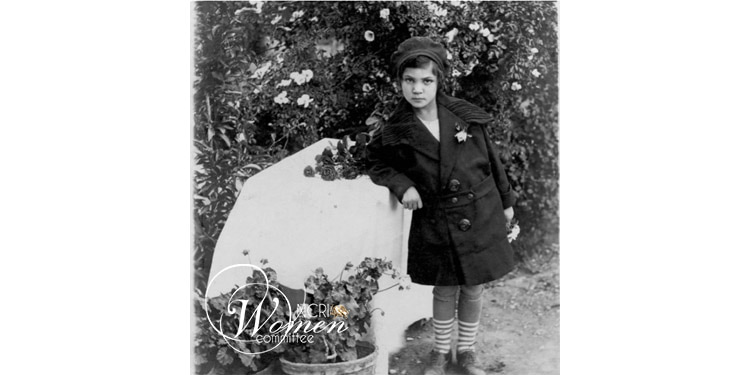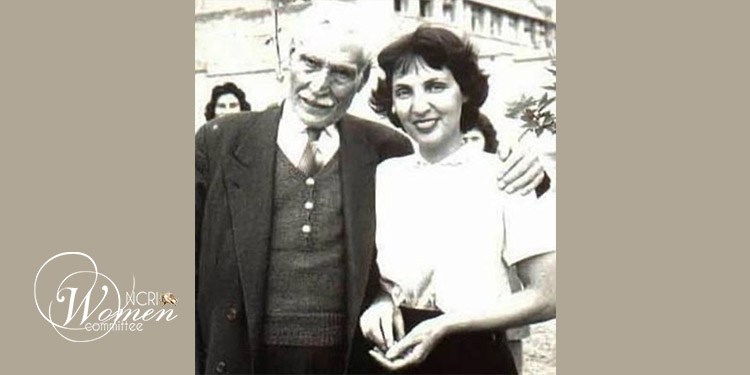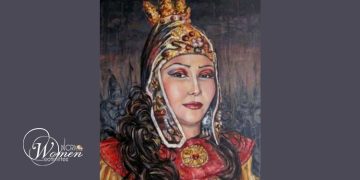The passing of Samineh Baghcheban, writer, translator, and one of the founders of deaf education in Iran, brought sorrow to the Iranian cultural and educational community. She passed away on September 17, 2025, at the age of 98.
Childhood in the Heart of Education
Samineh Baghcheban was born on March 24, 1927, in Tabriz, inside the first kindergarten in Iran, founded by her father, Jabbar Baghcheban. From the very beginning of her life, she was immersed in an atmosphere of learning and education. She spent her early years at the Shiraz kindergarten her father established, where she absorbed his principles of courage, self-confidence, honesty, and personal development.

Education and Academic Achievements
Baghcheban completed her primary and secondary education in Tehran before enrolling at Pamenar Teachers’ College and later the Higher Teachers’ College. In 1948, she graduated with a degree in English. Two years later, she received a scholarship to study in the United States.
She pursued higher education at Lindenwood College in Missouri and then earned her master’s degree in Deaf Education at Columbia University in 1953. She also studied speech therapy at Columbia, becoming one of the first Iranian specialists in the education of deaf children.
Educational Contributions
Upon returning to Iran, Samineh worked alongside pioneers of children’s education such as Touran Mirhadi and Abbas Yamini Sharif in revising school textbooks. In 1961, the Ministry of Education appointed her to lead nationwide training programs for first-grade teachers.
She later took on the management of the Baghcheban School and became the director of the Technical Training Institute for the Deaf. In the 1970s, she served as CEO of the National Organization for the Welfare of the Deaf, as well as head of clinical programs and professional training in audiology and interpretation for the deaf at the National University of Iran.
Her teaching method, inspired by her father, extended beyond Iran’s borders and was also implemented in Afghanistan and Tajikistan.
Books and Literary Works
Alongside her educational work, Baghcheban left a lasting mark on children’s literature. Her works include:
- Wooden Bridge
- Nowruz and the Kites
- Jom Jomak Autumn Leaves
- The Sun and the Moon, What Color Are They?
- Illuminator of the Darkness (about her father, Jabbar Baghcheban)
Several of her books were recognized by the Children’s Book Council of Iran. In collaboration with UNICEF, she adapted the traditional folk song “I Ran, and I Ran” into a children’s book and a sign-language video. She also translated the UN Convention on the Rights of the Child into Persian.

Cultural and Social Legacy
In 1977, a scholarship was established in her name by the Clarke School Fellowship for the Middle East (USA). Decades later, her life and contributions were documented in the book Samineh Baghcheban: Servant of Culture and Society.
Until her final years, she remained committed to the cause of education for deaf and hard-hearing children. Reflecting on her life, she once said:
“If I were born again, I would choose the same path. Every day of my life in the Baghcheban School was filled with joy, and I thank God for guiding me toward this mission.”
The life of Samineh Baghcheban is a powerful reminder that education is the right of every child—hearing or deaf. She was not only a pioneer in children’s literature but also a cornerstone in the foundation of Iran’s deaf education system. Her memory and contributions will remain a permanent part of Iran’s cultural and educational history.
























